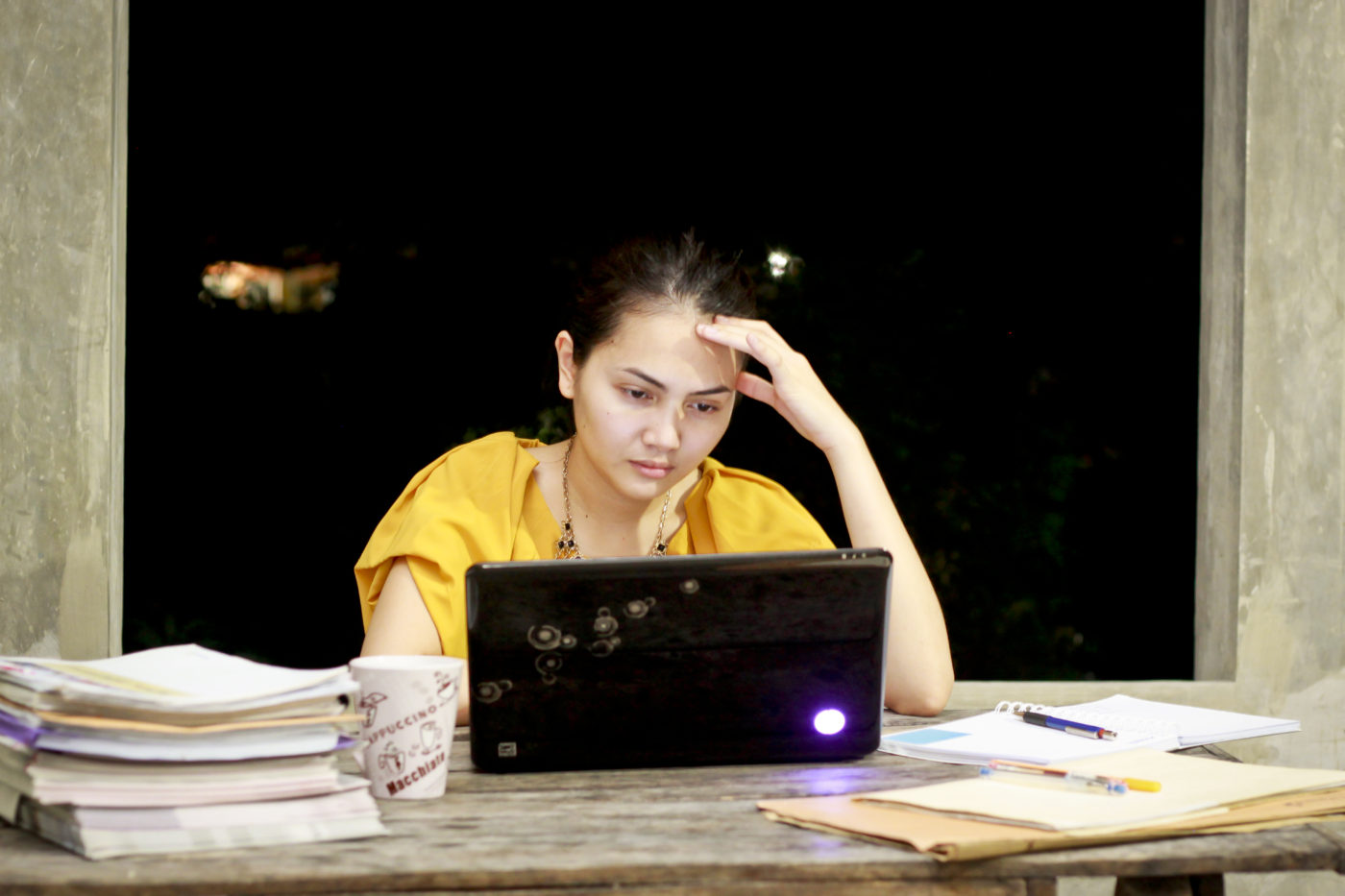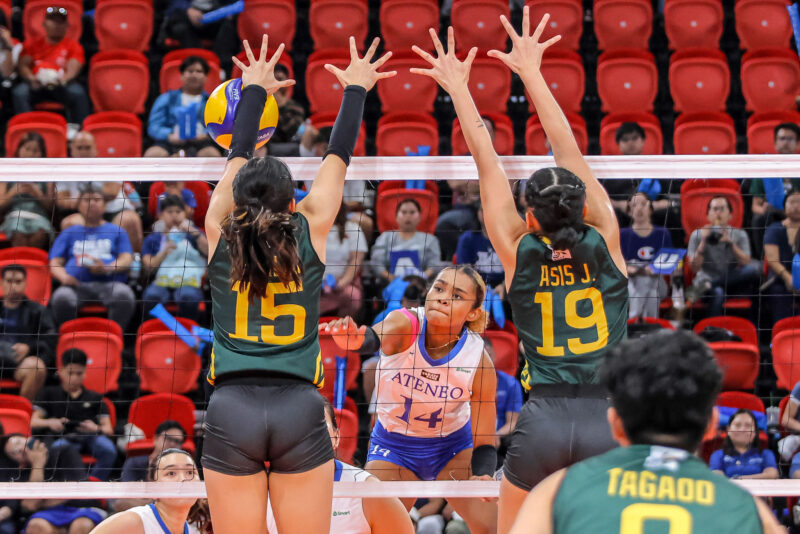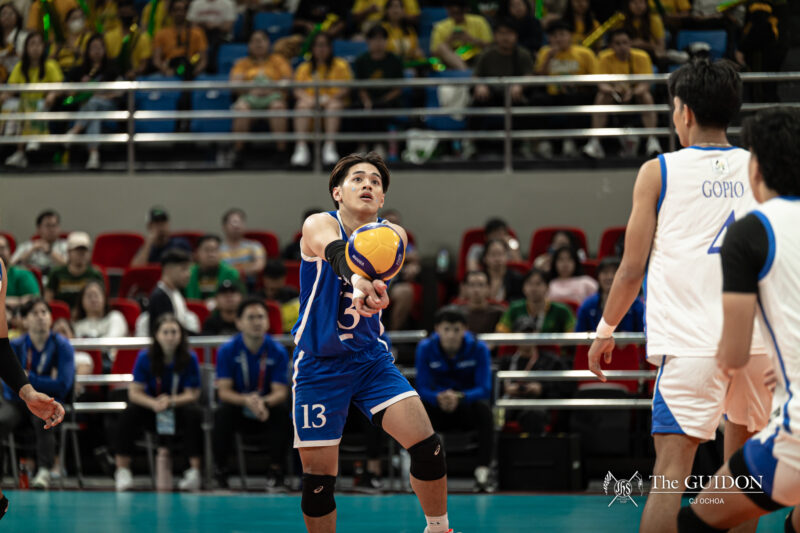University life is an experience of newfound control over one’s personal time. Compared to high school’s rigid schedules and set periods for extracurricular work, the long breaks and many meetings of college life can be disorienting.
Yet, as they face it, so many students seem to thrive in all of this newfound time and control over their schedules. In the Ateneo in particular, students surround themselves with high-achieving peers who seem to accomplish so much so cheerfully, and still find time to party and hang out with friends on weekends, or even weeknights. Everyone has a friend who is in the running for Latin honors, on the executive board of some organization, owns some kind of food stall business and has a great internship—all at once.
This ecosystem of achievers can be a very empowering reality that brings out the best in students, but some simply struggle to keep up. Conventionally, many imagine an adjustment period preceding all this, where college freshmen learn to cope with these new realities, and eventually begin to flourish in this environment a semester or two later. But the reality is, not everyone learns to cope by then, and in trying to keep up, students bite off more than they can chew.
These students end up going to great lengths not to let themselves fall behind. But how much does this culture of overwork affect Loyola Schools (LS) students?
Who’s at risk?
The problem is, so many students dive into this reality unprepared and unguided, and many end up with more work than they can handle. Asked about this, LS Office of Guidance and Counseling (LSOGC) Guidance Director Dr. Peter Gatmaitan points to a survey conducted by the LSOGC as evidence. It showed that stress management and time management were among the top four areas that scholars needed helped with, along with financial management and planning for the future, and he believes the trend will hold true for the general population as well.
Gatmaitan points to students juggling a lot of responsibilities, often either minor or major roles in several orgs, as common examples of how overwork manifests. These people are driven not only by a desire to give back to their community and org, but sometimes even a need for belonging. “It’s fun to meet new people and it’s fun to hang out with them, but then sometimes seeking this fun and belongingness overtakes the responsibility of the student’s academics,” he says.
The academic work many students choose to take on can overwhelm them as well. These come in the form of minor degrees, second major degrees or difficult classes taught by difficult teachers.
In Gatmaitan’s experience, overworked students in the LS also include athletes that have the added and heavy responsibility of training, and students who live far away and are forced to manage around the considerable time they spend traveling to and from home.
One such student is Juan*, a senior management engineering student. He had to juggle his thesis semester with a minor degree, a top position in his org, managing a food stall and daily travel to and from Makati that often found him arriving home at 10:00 PM. He estimates that for at least half of the five months of and leading up to the semester, he had less than four hours of sleep per night. At one point, he had caught a disease and was admitted to the hospital for several days, where he was told that his sleep schedule was a contributing factor to the illness’ severity.
He recalls having pulled at least 10 all-nighters during those five months, most of those being for thesis submissions. “We had an internal team deadline,” Juan explains, “and we usually ended up needing to not sleep just to finish [on] the deadlines we set for ourselves.” A few other all-nighters, he recalls, were for org work. Outside of the work-heavy days, he recalls feeling that he “needed the time just to catch up.” “The work load kept piling up on me, to be honest,” he adds.
Asked why he thinks he let himself get so overworked, Juan points to a misconception of magis, one of the characteristics of a Jesuit education that calls us to strive for excellence. Juan understands magis as “doing as much as I can for the cause I wanted to fight for.” Since that semester however, he’s come to temper that conception, as juggling too much at once can compromise the quality of work, and that the living out of magis should be concerned with that.
By the number
It seems that Juan is not alone in feeling overworked. The Ateneo Statistics Circle administered a survey to a random sampling of 100 LS students for this article, and it yielded results that showed that the average Atenean gets only 5.7 hours of sleep on a regular night. The average Atenean also loses two more hours on average during self-defined “hell weeks,” which are weeks when a student has exceptionally more work than usual. As many as 39% of respondents averaged five or less hours of sleep per night, and 15% averaged four or less hours per night. This is far from the ideal—eight hours of sleep per night—and students know it. 74% are unhappy with the amount of sleep they get on a regular week. That number climbs to 92% on hell weeks.
According to Gatmaitan, students approaching a state of overwork do spend less and less time preparing for classes and working on course requirements. “By implication,” he adds, “this leads to late passing of course requirements, great amounts of stress in trying to meet course requirements’ deadlines, or preparing for exams and quizzes.”
This contrasts with survey results that suggest that org work only accounts for two additional hours of work on an average day. Org work also ranked lowest in terms of time allotment in comparison to academic work, sleep, time with friends and time with family, suggesting a problem in how students manage extra work.
Despite these observations and numbers, about four in 10 students still do not feel that they spend enough time on academic or extracurricular work.
Looking at other aspects of a student’s life, about 30% do not feel they spend enough time with their friends, and just over 50% do not feel they spend enough time with their family. Gatmaitan observes that overworked students can even come into conflict with their family as they often have trouble observing set times when it comes to going home from school.
The community coping
Asked about effects of overwork on health and well-being, Gatmaitan says that there are “serious implications.” The adverse effects lay mainly in three areas: Anxiety, depression and, in rare cases, suicidal behavior. The LSOGC cannot disclose numbers related to this, but Gatmaitan assures that these are issues to be taken seriously on campus.
The LSOGC has made recent attempts to reach out to students in need in a broader sense, holding sessions this year with mandatory attendance to inform the student body about their services. Gatmaitan says that reaching out to students suffering from overwork is one of the reasons, among others, behind this.
The LSOGC has also initiated efforts to proactively identify students at risk due to overwork or other reasons. One area that is accessible to the university administration to observe is the classroom. To pursue this, the LSOGC held a type of roadshow for professors, to teach them how to identify common warning signs in the classroom. These warning signs include regular tardiness, near-maximum cuts, having difficulty meeting course requirements deadlines, sleeping in class or noticeable declines in grades. Through professors, the LSOGC identifies, monitors and may approach students that seem to be at risk.
Another area that could suggest the state of a student’s well-being is the very output of their work. Outside of the physical classroom, teachers are also taught to look at the content of papers or projects because sometimes even these can provide clues for what students may be going through.
Gatmaitan admits the office still has a lot of work ahead of them in terms of creating more specific services. On that, he also brings up that the office is indeed planning to have its own research laboratory to better identify which students have which concerns so they can create more targeted programs.
Getting help
Gatmaitan explains that for students that do approach the LSOGC for help, the office always tries to cater their approach to each case based on individual students: In particular, what they are feeling, the intensity of these feelings and the types of support options available. The approach to each student is catered to his or her own needs and expectations. This follows a process that begins with an agreement on goals, boundaries and expectations with students first and the plans for therapy develop from there, all with the consent and cooperation of the students.
Gatmaitan wants to emphasize that the university really is here to help. “Ateneo is a very special place and I can attest to this,” he says. “The Office of Guidance and Counseling works together with departments including the [Office of the Associate Dean for Student Affairs], [Office of the Associate Dean for Academic Affairs] and even home departments, just to see how the university can help.” This is an especially important role that the office plays: To communicate with authority the difficulties that some students face.
The type of help dealt out in practice has indeed varied greatly, Gatmaitan recalls. The services have led to tutoring or, in cases where students have had a hard time making friends, reaching out to orgs to help give the student a sense of belonging. This also comes with the general service of counseling: Someone to listen, and be an outlet, but also someone to help facilitate the level-headed thinking necessary to reorganize time, priorities and reassess capabilities.
Despite all that, however, the system relies on students choosing to come forward with their problems and choosing to get help for their problems, and Gatmaitan realizes that it is always difficult to choose to get help. Ultimately, it falls on each student to recognize his or her problems, and, with some help, take back control for himself or herself, as Juan learned the hard way.
Editor’s Note: Juan’s name was changed at his request.
Clocking in overworked
By Nicolo A. Fortuna
As research for “Burnout,” the Ateneo Statistics Circle conducted a survey about the workload that Loyola Schools (LS) students take on. This survey was administered online to a random sampling of 100 LS students. The survey asked questions about their academic and extra-curricular workload, and what effects their work has on their lives. From hours of sleep to hours spent with family, it may be seen that some LS students do bite off more than they can chew.
What do you think about this story? Send your comments and suggestions here: tgdn.co/2ZqqodZ








I’d wanna expound more on that point regarding a misconception of Magis.
From personal experience, when I was a freshman, I (subconsciously, given that I only recognize it now, halfway through junior year) believed that Magis had to do with the image of being involved, of being pointed out in the block and elsewhere as “that guy active in three orgs AND Sanggu”. Two years, a hundred hours of lost sleep, and a lot of poor quality work submitted later, I’ve come to realize something close to that damned Magis ideal: it’s not about how many pies your fingers are in, it’s how you prepare (and enjoy eating) that one pie you’ve committed to.
I guess this applies to some of us as well.